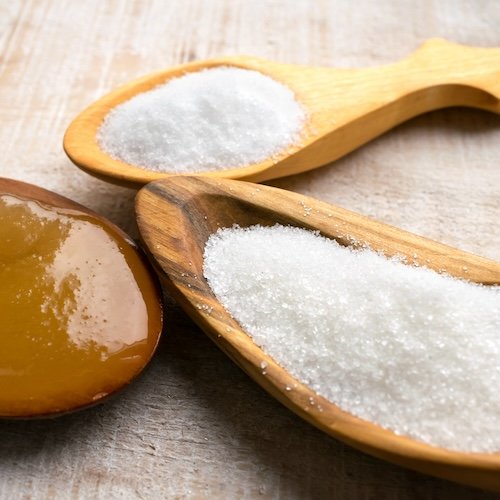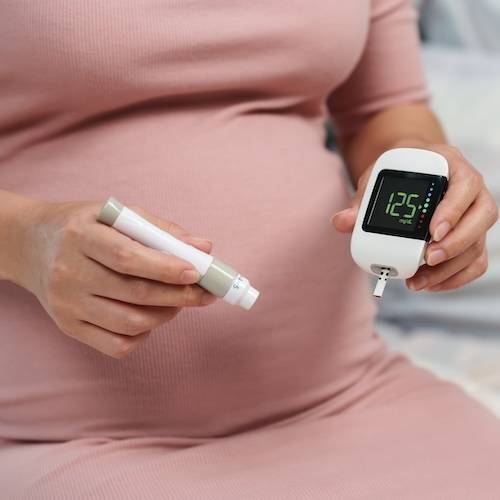The terms “blood sugar” and “blood pressure” are familiar to a lot of people, especially adults trying to be extra cautious about their health. You may wonder though: Are blood pressure and blood sugar related?
The answer is yes, and there are considerations to remember regarding these important facets of your health. Learn more about the relationship between blood sugar and blood pressure with this read.
Blood Sugar and Blood Pressure: What’s the Difference?
As its name implies, blood sugar refers to glucose found in your blood. If not maintained properly, people can experience health issues like hyperglycemia (too high blood sugar levels) or hypoglycemia (too low blood sugar levels).
According to the American Diabetes Association (ADA), ideal blood sugar level goals for patients with diabetes are individualized, varying from person to person. To determine ideal blood sugar levels, consider factors such as age or life expectancy, duration of diabetes (or not), pre-existing health conditions, complications linked to diabetes or cardiovascular disease, hypoglycemia unawareness, or patient-specific concerns.
Blood pressure refers to the force that blood exerts against your arteries’ walls. Two important values are considered in blood pressure: systolic and diastolic. Per the Centers for Disease Control and Prevention (CDC), the former refers to pressure in the arteries when your heart beats, while the latter signifies pressure in the arteries when the heart is at rest.
Like blood sugar levels, it’s important that people maintain normal blood pressure levels. Doing so may help people lower their risk for health issues like hypotension (low blood pressure levels) or hypertension (high blood pressure levels).
In 2018 findings, experts from the American College of Cardiology and American Heart Association Task Force highlighted that normal blood pressure levels should be less than 120/80 mm Hg.
Exploring Blood Sugar and Blood Pressure’s Relationship
Research has consistently proven that a person’s blood sugar and blood pressure levels are related to each other. This means that what can affect any of these factors is most likely to affect the other. In fact, according to authors of a 2018 study published in The Canadian Journal of Cardiology:
“Their frequent coexistence in the same individual is not a coincidence, because aspects of the pathophysiology are shared by both conditions, particularly those related to obesity and insulin resistance.”
People can experience hypertension at the same time as diabetes because of multiple factors. However, one factor that stands out is a sedentary lifestyle coupled with excess calorie intake. These factors can make people overweight and be at risk for worsened insulin resistance.
Insulin resistance occurs when cells in muscles, fat, and liver fail to respond properly to insulin hormones made by the pancreas, and the body is not able to receive glucose properly.
Researchers pointed out that increased insulin resistance can lead to issues like heightened oxidative stress and inflammation, to name a few. These events can lead to vascular stiffness, increased blood pressure levels, and potentially raise the risk for cardiovascular disease.
What About Blood Sugar and Blood Pressure During a Pregnancy?
Pregnant women may also experience the potentially negative effects of high blood sugar or blood pressure levels. For instance, some women may be diagnosed with gestational diabetes
Women with this type of diabetes struggle with insulin resistance, wherein the hormone of the same name is not as utilized properly due to other hormones that are made by the placenta throughout a pregnancy. When insulin resistance happens and glucose remains in the bloodstream instead of being absorbed by cells, blood sugar levels can rise, affecting pregnant women and their growing baby.,
Some pregnant women may also be affected with hypertensive disorders of pregnancy (HDP), under which conditions like pre-existing hypertension, gestational hypertension (GH), and preeclampsia come into play.
Findings have shown that women with diabetes (not necessarily gestational) may have a higher risk for developing HDP. In particular, 20% of pregnant diabetics are said to be diagnosed with GH and/or preeclampsia.
This risk can even go higher if the woman has comorbidities like pre-existing hypertension or impaired glucose control. Struggling with diabetes during a pregnancy may also raise a woman’s risk for cardiovascular disease in the future. Lastly, it is said that a gestational diabetes diagnosis may increase a woman’s risk for HDP.
How to Keep Your Blood Pressure and Blood Sugar in Check
While the task seems daunting, there are a number of ways you can avoid the potential complications linked to high blood pressure and high blood sugar levels:,
- Exercise frequently: Just make sure to talk to a doctor or therapist first to know about the workouts that are best suited for your current health status. This is crucial especially if you have previous or existing injuries that may make it difficult for you to move a lot.
- Follow a nutritious diet: Strive to eat lots of vegetables and high-fiber food. You can eat fresh fruit too, but ideally in moderation since these contain sugars that can be harmful for the body if consumed in excess. On the other hand, significantly lessen your intake of salt, sugar, and unhealthy fats like trans fat and animal fat.
- Quit smoking: This particular practice has been heavily linked to high blood pressure levels. See to it that you stop smoking at all costs to avoid the negative impacts of high blood pressure and high blood sugar levels.
- Avoid drinking too much alcohol: Just like smoking, excessive alcohol consumption has been linked to elevated blood pressure levels. Plus, these beverages may also increase your calorie intake and result in weight gain.
- Consult your doctor: If you feel like you are at risk for either high blood pressure or high blood sugar levels, make sure to talk to a doctor right away. They can help you understand your current condition, prescribe medications if needed, and provide other strategies that may help boost your quality of life.
If you are worried about the effects of high blood sugar and/or high blood pressure levels for your health, consult a doctor immediately. They will help you understand what your current condition is, and guide you in the right direction by providing helpful strategies and recommendations that tackle these health issues.
References:
https://www.ncbi.nlm.nih.gov/books/NBK279340
https://www.ncbi.nlm.nih.gov/books/NBK499961/
https://www.ncbi.nlm.nih.gov/books/NBK279027/
https://www.ncbi.nlm.nih.gov/pmc/articles/PMC5953551/
https://www.ncbi.nlm.nih.gov/pmc/articles/PMC8673181/
https://www.cancer.gov/publications/dictionaries/cancer-terms/def/blood-sugar
https://www.cdc.gov/bloodpressure/about.htm https://www.cdc.gov/diabetes/basics/gestational.html
https://www.urmc.rochester.edu/encyclopedia/content.aspx?ContentTypeID=90&ContentID=P02444
https://www.hopkinsmedicine.org/health/conditions-and-diseases/diabetes/gestational-diabetes








